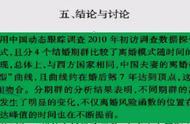“不给糖就捣蛋”游戏、南瓜灯、诡异的服装,这些都是万圣节的经典传统。但你知道这些传统有多个版本的起源故事吗?你知道糖苹果和玉米糖是怎么成为万圣节美食的吗?你知道万圣节装饰常用的黑色和橙色象征着什么吗?不要傻傻地只知道化装舞会和南瓜灯了,一起来丰富一下关于万圣节的有趣知识吧!

Photo by Nicole Edelbrock on Unsplash
1. CARVING HALLOWEEN JACK-O'-LANTERNS
雕刻万圣节南瓜灯
Jack-O'-Lanterns, which originated in Ireland using turnips instead of pumpkins, are supposedly based on a legend about a man named Stingy Jack who repeatedly trapped the Devil and only let him go on the condition that Jack would never go to Hell. When he died, however, Jack learned that Heaven didn’t really want his soul either, so he was condemned to wander the Earth as a ghost for all eternity. The Devil gave Jack a lump of burning coal in a carved-out turnip to light his way. Eventually, locals began carving frightening faces into their own gourds to scare off evil spirits.
南瓜灯起源于爱尔兰,最开始是由萝卜雕的,不是南瓜。传说有个绰号叫“吝啬鬼杰克”的男人屡次捉住魔鬼,并且要魔鬼允诺永远不会让他下地狱才肯放掉魔鬼。然而,他去世时才知道,天堂也不愿意接受他的灵魂,所以他只能做孤魂野鬼,永远在人间游荡。魔鬼给了杰克一个装有燃煤的雕刻萝卜作为照明的灯笼。久而久之,当地人也开始在他们的南瓜上雕刻狰狞的面容,以驱赶恶灵。
2. SEEING GHOSTS
幽灵出没
Celtic people believed that during the festival Samhain, which marked the transition to the new year at the end of the harvest and beginning of the winter, spirits walked the Earth. Later, the introduction of All Souls Day on November 2 by Christian missionaries perpetuated the idea of a mingling between the living and the dead around the same time of year.
凯尔特人认为,在萨温节期间,幽灵便在人间徘徊。萨温节标志着新的一年的开始(在古凯尔特人的信仰里,新的一年于11月1日开始)和收获季到冬天的过渡。之后,基督教传教士在11月2号设立了万灵节,宣扬称生者和死者会在一年的这个时间相聚。

Photo by Conner Baker on Unsplash
3. WEARING SCARY COSTUMES
穿吓人的衣服
With all these ghosts wandering around the Earth during Samhain, the Celts had to get creative to avoid being terrorized by evil spirits. To fake out the ghosts, people would don disguises so they would be mistaken for spirits themselves and left alone.
传说萨温节期间有许多可怕的幽灵游荡人间,凯尔特人必须巧妙设法避开它们。为了瞒过恶灵,人们会将自己打扮成幽灵的样子,这样幽灵便会误以为对方是同类而离开。
fake out: 以欺骗手法制胜
4. GOING TRICK-OR-TREATING, THE PAGAN WAY
非基督教版本的“不给糖就捣蛋”
There is a lot of debate around the origins of trick-or-treating. One theory proposes that during Samhain, Celtic people would leave out food to placate the souls and ghosts and spirits traveling the Earth that night. Eventually, people began dressing up as these otherworldly beings in exchange for similar offerings of food and drink.
关于“不给糖就捣蛋”传统的来源有很多争议,其中一种说法是,凯尔特人在萨温节期间会摆出食物来安抚那天夜里在人间徘徊的亡灵和鬼神。后来,人们也开始打扮成亡灵的样子,来换取食物和饮料。

Photo by Haley Phelps on Unsplash
5. GOING TRICK-OR-TREATING, THE SCOTTISH WAY
苏格兰版本的“不给糖就捣蛋”
Other researchers speculate that the candy bonanza stems from the Scottish practice of guising, itself a secular version of souling. In the Middle Ages, soulers, usually children and poor adults, would go to local homes and collect food or money in return for prayers said for the dead on All Souls’ Day. Guisers ditched the prayers in favor of non-religious performances like jokes, songs, or other “tricks.”
还有些学者猜测这一传统来源于苏格兰的化装习俗——将自己装扮成世俗的幽灵。在中世纪时期,儿童和贫穷的成人通常会装扮成幽灵,到本地人的家里乞求食物或钱,并以在万灵节为死者祈祷作为回报。随着时间流逝,化装者不再用祈祷,而是用笑话、歌曲或其他“把戏”等非宗教表演作为回报。
6. GOING TRICK-OR-TREATING, THE AMERICAN WAY
美国版本的“不给糖就捣蛋”
Some sources argue that our modern trick-or-treating stems from belsnickling, a tradition in German-American communities where children would dress in costume and then call on their neighbors to see if the adults could guess the identities of the disguised guests. In one version of the practice, the children were rewarded with food or other treats if no one could identify them.
一些来源指出,现代的“不给糖就捣蛋”来源于德裔美国人社区的一个名叫“贝斯尼克”的传统。孩子们化装好,然后去拜访邻居,看他们能否猜出装扮后的客人是谁。在其中一个版本的习俗中,如果没被认出来,这个孩子就可以得到食物或者其他奖励。















